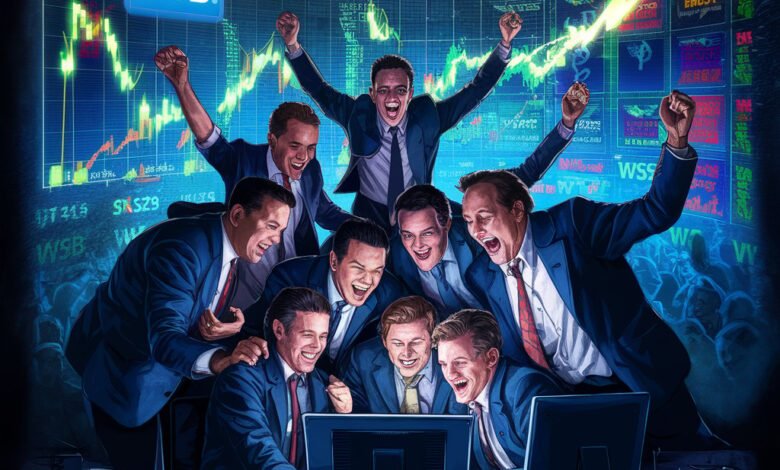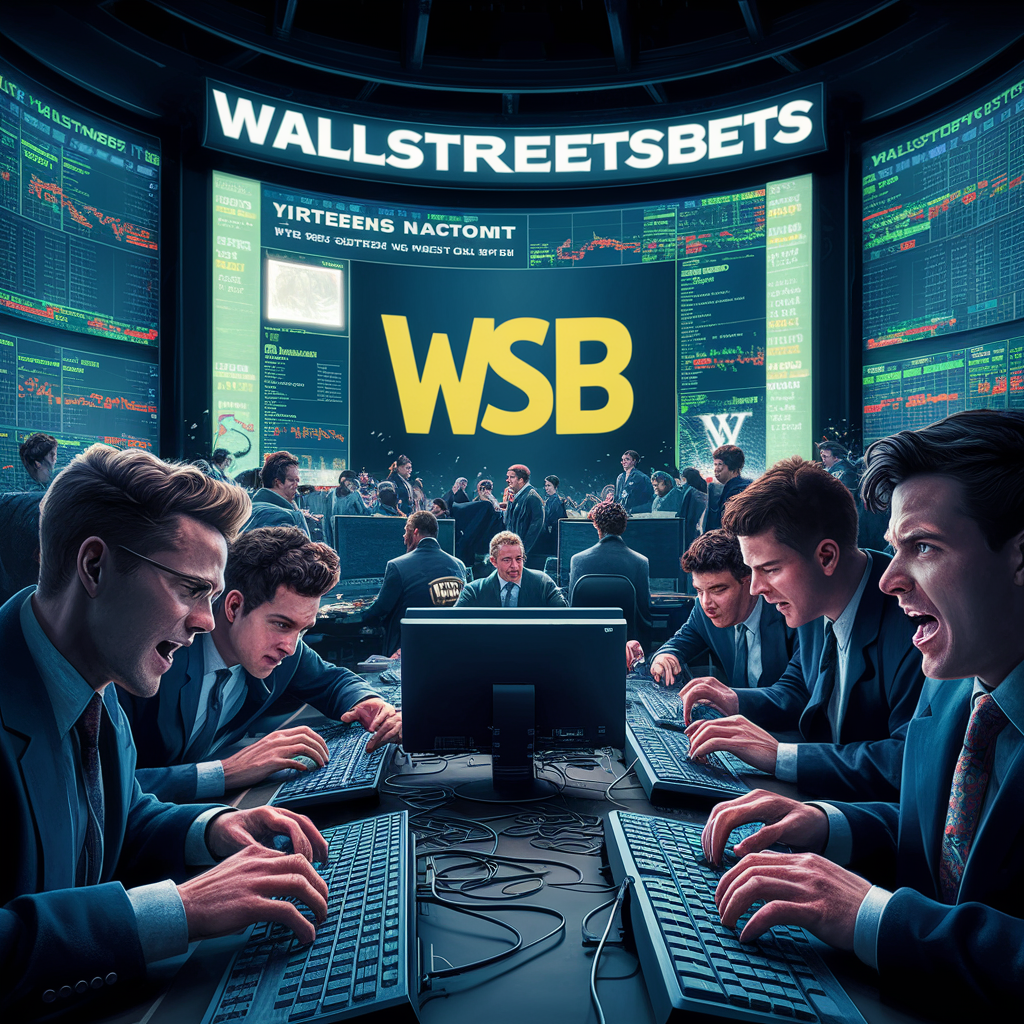WSB News: How WallStreetBets Became a Market-Moving Phenomenon

Introduction
What began as a niche Reddit forum for amateur traders has exploded into one of the most influential forces in modern finance. WallStreetBets (WSB) News represents more than just stock tips—it’s a cultural movement that has upended traditional investing, challenged Wall Street institutions, and created millionaires (and losers) overnight. With its signature blend of memes, diamond-hand mentality, and high-risk options trading, WSB has become must-watch content for everyone from hedge fund managers to casual investors. This article dives into how this online community turned into a market-disrupting powerhouse, examining its biggest plays, most notorious figures, and the lasting impact it’s having on global markets.
1. The Origins of WSB: From Internet Jokes to Market Chaos
WallStreetBets started in 2012 as a small Reddit community where retail traders shared risky bets, loss porn, and dark humor about the stock market. What set WSB apart was its irreverent culture—where traditional financial advice was mocked, and YOLO (You Only Live Once) trades were celebrated. The subreddit gained traction during the late 2010s as commission-free trading apps like Robinhood made markets more accessible. But it wasn’t until early 2021 that WSB became a household name, when its members collectively targeted heavily shorted stocks like GameStop (GME) and AMC, triggering a short squeeze that cost hedge funds billions. This David vs. Goliath narrative turned WSB into a symbol of populist finance, proving that a coordinated swarm of retail traders could move markets.
2. The GameStop Saga: WSB’s Defining Moment
The GameStop short squeeze of January 2021 was WSB’s crowning achievement—a perfect storm of market mechanics, social media virality, and anti-establishment sentiment. When hedge funds bet against GameStop, assuming its stock would collapse, WSB users spotted an opportunity. They piled into call options and shares, driving GME’s price up over 1,500% in weeks. Platforms like Robinhood temporarily restricted buying (sparking accusations of Wall Street collusion), while CNBC and financial elites scrambled to understand the revolt. The event exposed flaws in market structure, from payment-for-order-flow to naked short selling, and turned WSB figures like “DeepF—ingValue” (Keith Gill) into folk heroes. Most importantly, it proved that Reddit traders could wield unprecedented collective power.
3. Meme Stocks and the WSB Playbook
After GameStop, WSB became synonymous with “meme stocks”—beleaguered companies that traders hype into unlikely rallies. AMC, BlackBerry, Bed Bath & Beyond, and even cryptocurrencies like Dogecoin became targets of WSB’s coordinated buying. The strategy often follows a pattern:
- Identify heavily shorted stocks (where Wall Street is betting on failure)
- Mobilize the “apes” (WSB’s term for its members) to buy shares and call options
- Create viral memes and hashtags to sustain momentum
- Hold through volatility (hence the mantra “💎🙌 diamond hands”)
While some traders scored life-changing gains, others got burned when hype fizzled. Still, the meme stock phenomenon permanently changed how markets react to social media trends.
4. The WSB Culture: Memes, Jargon, and Psychological Warfare

WSB isn’t just about stocks—it’s a linguistic and cultural force. Phrases like:
- “To the moon!” (a stock soaring)
- “Bagholder” (someone left holding worthless shares)
- “FOMO” (Fear Of Missing Out)
- “Tendies” (profits, from “chicken tenders”)
…have entered mainstream finance talk. The subreddit’s mix of self-deprecating humor, bravado, and defiance (“I didn’t hear no bell!”) keeps morale high even during brutal losses. Crucially, WSB also engages in psychological warfare—flooding social media with bullish sentiment to lure more buyers (and sometimes trap short sellers). This trolling element makes WSB both entertaining and dangerously manipulative.
5. Regulatory Fallout and Lasting Market Impact
The GameStop frenzy triggered congressional hearings, SEC investigations, and new debates over market fairness. Critics argue WSB encourages reckless gambling, while supporters say it exposes Wall Street’s hypocrisy (after all, hedge funds take risky bets too). Key outcomes include:
- Tighter rules on payment-for-order-flow (how brokers like Robinhood make money)
- Increased scrutiny of short-selling practices
- More “meme stock” volatility safeguards on trading platforms
- A surge in retail trading participation (individual investors now account for ~25% of U.S. market activity)
WSB’s legacy is clear: Markets can no longer ignore the power of decentralized, internet-driven trading collectives.
6. What’s Next for WSB? NFTs, Crypto, and Beyond
Today, WSB’s influence extends beyond stocks. The community has dabbled in:
- Cryptocurrency pumps (Dogecoin, Shiba Inu)
- NFT stock memes (like the infamous “GME Floor” NFT)
- Activist short squeezes (targeting hedge fund favorites like Peloton)
As younger investors dominate markets, WSB’s blend of humor, rebellion, and financial strategy will likely keep shaping trends—for better or worse.
Conclusion: WSB News Isn’t Just a Forum—It’s a Financial Revolution
WallStreetBets has rewritten the rules of investing, proving that a viral meme can be as powerful as a Wall Street analyst report. While its methods are controversial, WSB’s impact is undeniable: It democratized market influence, exposed systemic flaws, and created a new playbook for retail traders. Whether you see WSB as a dangerous casino or a heroic uprising, one thing is certain—it’s changed finance forever.



